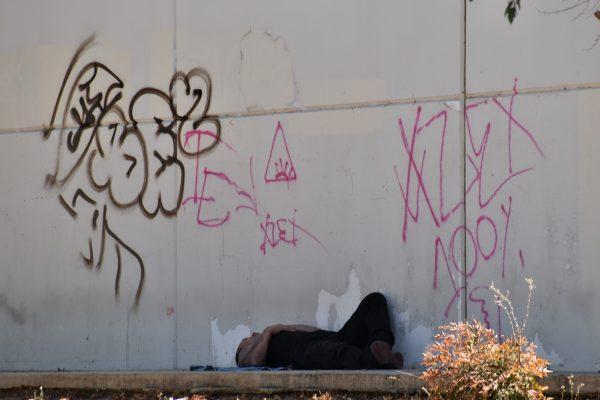
By Erik Galicia
A coalition of mayors of California’s 13 largest cities are asking the state’s leadership to commit $20 billion over the next five years to address homelessness.
If approved in the state budget, it would be the largest monetary commitment to tackling homelessness in the country’s history.
The group, Big City Mayors, urged action during a news conference April 29.
“This year’s budget presents California with a once in a generation opportunity to dramatically reduce homelessness if we can muster the collective courage and will to stand up for our most vulnerable neighbors,” said San Jose Mayor Sam Liccardo. “We need to treat homelessness like the crisis that it is.”
The coalition sent a letter to Gov. Gavin Newsom and the state legislature April 8, asking for a $16 billion commitment over the next four years to address the crisis. Both the State Senate and Assembly proposed this month an increased homelessness solutions fund of $20 billion over the next half decade.
The money could help build over 100,000 homes for unhoused Californians, according to the group of mayors.
The allocation of funds would be determined by Newsom and the state legislature. The awarding of money to combat homelessness has historically been based on the combination of counties’ populations and the number of homeless people found during their annual Point in Time counts.
According to Philip Falcone, assistant to Riverside Mayor Patricia Lock Dawson, an allocation strategy for the possible $20 billion has not yet been decided, so it is unknown how much funding the city might receive.
This year’s Riverside County Point in Time Count was canceled due to COVID-19. But last year’s data found 2,155 unsheltered individuals in the county.
Homelessness has been at the top of residents’ concerns during Riverside elections in recent years, with many complaining about homeless people in city parks, outside small businesses and in the Santa Ana River bottom.
The city cleared a Skid Row-like encampment on the 1900 block of Massachusetts Avenue last September and provided over 60 of the people living there with temporary housing. The St. Michael’s Project, a permanent supportive housing complex in Ward 5, is also set to move forward.
Dawson said more work remains.
“Without ongoing funding for these critical operations, our efforts, our momentum, will be stalled,” she said. “This multi-billion dollar proposal will allow Riverside to support long-term solutions to homelessness.”
The state foresees a budget surplus of around $40 billion for the upcoming fiscal year, after alternating between the availability of funds and deficits over the last year.
Liccardo, in response to Californians who say the mayors are asking for too large of an investment, said it will be money well spent.
“When we emerge from this pandemic, this will remain our biggest problem,” he said. “The evidence is clear that we haven’t spent nearly enough addressing this crisis.”
Although $20 billion is a big number, homelessness is a big issue, Santa Ana Mayor Vicente Sarmiento added.
The coalition is asking for flexibility in the use of funds to address homelessness, should they be allocated. Cities should be allowed to use funds to build the infrastructure that addresses their individual needs in terms of homelessness solutions, Sacramento Mayor Darrell Steinberg argued.
The five year period of what the coalition is asking for would allow flexibility in operations, he added.
In Riverside, that would entail a focus not only on housing, but on prevention and exit services for people with addictions, mental health issues and disabilities, Dawson said.
“Riverside has a proven track record of using funding from the state in an innovative and proven manner,” she said. “While we remain certain about recovering from this pandemic, we must also be equally certain and optimistic in our ability to meet the crisis of homelessness in our cities. With this funding, we can begin to move the needle.”
Los Angeles Mayor Eric Garcetti, who is planning to spend nearly $1 billion to fight the homelessness crisis in his city, noted the issue is far beyond avoidance.
“This is the biggest crisis in California,” he said. “It is everywhere. People die from homelessness. It is time for California, at a moment of a historic surplus, to speak to our values.”





